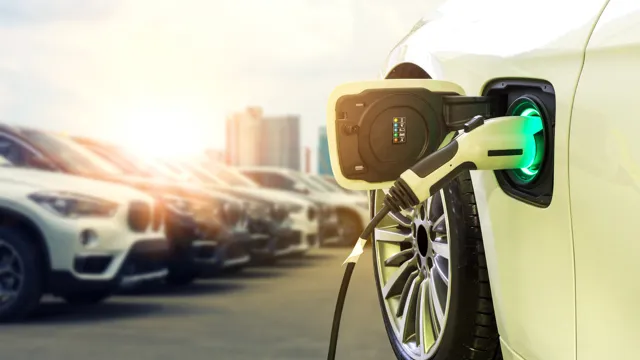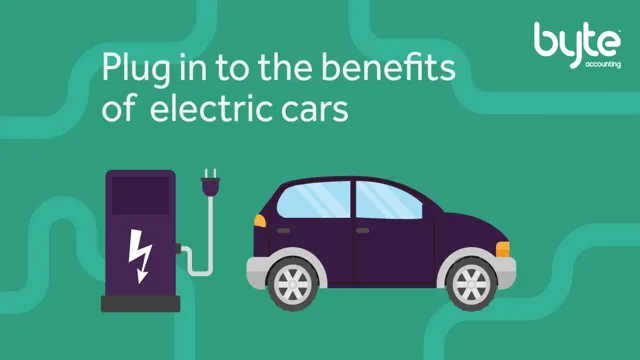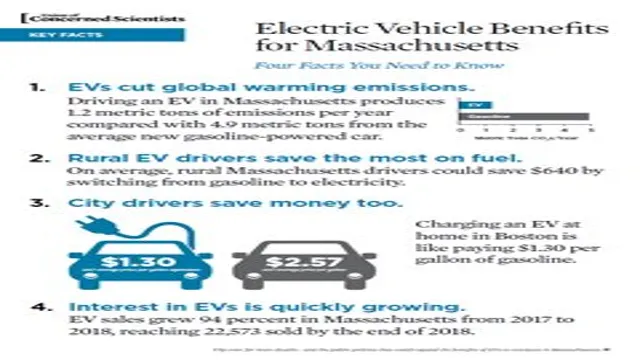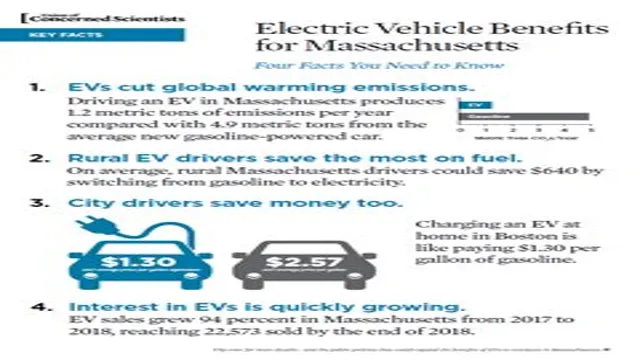Driving Towards a Greener Future: Exploring the Economic Benefits of Electric Cars in the UK
Electric cars have been on the rise, and it’s no secret that they are better for the environment than traditional gasoline cars. However, many people may not be aware of the economic benefits that come with electric cars in the UK. Electric cars offer more than just environmental benefits, as they can also save you money in the long run.
In this blog post, we’ll explore the various economic benefits that electric cars offer in the UK, from lower running costs to tax incentives. So, if you’re on the fence about investing in an electric car, keep reading to learn more.
Lower Fuel Costs
When it comes to the economic benefits of electric cars in the UK, one of the most noticeable is the lower fuel costs. Unlike traditional gas-powered vehicles that rely on expensive gasoline or diesel fuel, electric cars can be charged at home or at public charging stations for a fraction of the cost. In fact, according to recent data, the average cost to charge an electric car is around 14p per kWh, which is significantly cheaper than petrol and diesel prices in the UK.
This not only saves drivers money on fuel costs, but also reduces the overall cost of ownership of the vehicle. With electric cars becoming more and more popular, it’s clear that the economic benefits of driving electric are hard to ignore. So, if you’re considering making the switch to an electric vehicle, now might be the perfect time to do it.
Electricity is cheaper than petrol or diesel
When it comes to the cost of fueling your vehicle, electric cars are becoming an increasingly popular option. While the initial cost of purchasing an electric car may be higher than that of a traditional gasoline model, the long-term savings can be significant. One of the main reasons for this is that electricity is simply cheaper than petrol or diesel.
In fact, according to recent studies, the cost of fueling an electric car is around 30% less than fueling a traditional gasoline car. This means that, over time, electric car owners can save a considerable amount of money on fuel costs. Additionally, electric cars are also typically more efficient than traditional gasoline cars, meaning that they use less energy to travel the same distance.
This further reduces the overall cost of running the car and can make electric cars a more cost-effective option in the long run. So, if you’re looking for a way to save money on fuel costs, an electric car might just be the way to go!

Government grants and tax incentives
When it comes to lowering fuel costs, government grants and tax incentives can be a big help. For businesses and individuals alike, there are several options available. One example is the federal Alternative Fuel Tax Credit, which provides a credit for each gallon of non-traditional fuel like propane, natural gas, or electricity used.
Additionally, targeted local and state grants can help install electric vehicle charging stations or purchase alternative fuel vehicles. These programs not only save money on fuel costs, but also contribute to a cleaner environment. It’s important to research and assess your options to take advantage of these grants and incentives.
By doing so, you can lower your fuel costs while simultaneously reducing your carbon footprint.
Lower Maintenance Costs
Electric cars are becoming increasingly attractive to consumers in the UK due to their low maintenance costs. While traditional gasoline cars require regular oil changes, air filter replacements, and other maintenance tasks, electric cars have fewer moving parts, which means that maintenance costs are much lower. In addition, electric cars do not require as much upkeep as gasoline cars because they have fewer fluids that need to be changed.
For example, electric cars do not require oil changes, which can save drivers time and money in the long run. Overall, the economic benefits of electric cars in the UK are clear, as they offer lower maintenance costs than traditional gasoline cars.
Fewer parts and less wear and tear
Lower Maintenance Costs When it comes to purchasing and maintaining equipment, one major concern for any business is the cost. Luckily, choosing equipment with fewer parts can help reduce the maintenance costs in the long run. With fewer components, there are fewer parts that can break down or require regular replacement, leading to lower wear and tear on the machine overall.
This not only saves money on replacement parts but also reduces the need for routine maintenance and repairs. Think of it like a car: a sports car with all the extra features might look impressive, but it will likely require more upkeep and repairs than a basic model. The same goes for equipment.
By selecting gear with only the necessary components, businesses can save on maintenance costs and ultimately have a more reliable machine. So, when shopping for equipment, it’s important to consider not just the upfront cost but also the long-term maintenance expenses. Choosing gear with fewer parts is a great place to start.
Regenerative braking system saves brake pads
A regenerative braking system is a cost-effective way to save money on brake pad maintenance costs. By utilizing the vehicle’s own kinetic energy, these systems convert it into electricity and store it in the battery. This process helps to slow down the vehicle, which reduces the wear and tear on the brake pads.
As a result, you’ll find that your brake pads last longer, which means you won’t need to replace them as frequently. Lower maintenance costs are a significant benefit of a regenerative braking system, as they help to extend the life of your vehicle’s components and reduce the amount of money you need to spend on repairs. This is especially true for heavy-duty vehicles that are used for commercial purposes, where brake pad replacements can be quite expensive.
Not only will a regenerative braking system save you money in the long run, but it’s also better for the environment, as it helps to reduce your carbon footprint by using renewable energy sources to power your vehicle.
Better Resale Value
When it comes to economic benefits of electric cars in the UK, one of the biggest perks is their better resale value compared to petrol or diesel cars. Electric cars are still relatively new to the market, and their demand is constantly growing due to their energy efficiency and eco-friendliness. This means that the resale value of electric cars tends to hold up better over time.
Additionally, government incentives and tax credits make electric cars more affordable, which further boosts their resale value. As more people shift towards electric cars, their resale value is expected to appreciate in the coming years. This means that investing in an electric car can pay off both in the short term and in the long run.
So, if you’re looking to make a smart economic decision, consider going electric and enjoy the benefits of better resale value.
Good resale value due to demand and tax incentives
One of the biggest advantages of buying an electric car is the potential for a better resale value down the line. As demand for electric vehicles continues to grow, more and more people are looking to buy them, and that means your used electric car will likely be in high demand too. On top of that, there are tax incentives that make buying an electric car more attractive to buyers, which can help boost your resale value even further.
Of course, like any car, the resale value of your electric vehicle will depend on a number of factors, such as the make and model, the age and condition of the car, and the current market demand. But overall, owning an electric car can be a smart investment that pays off in more ways than one.
Reduced Environmental Impact
Electric cars have numerous benefits, including reduced environmental impact. Over the last few years, the UK government has been pushing for the adoption of electric cars by offering various incentives such as grants and tax-free benefits. The economic benefits of electric cars in the UK are undeniable.
First, electricity is much cheaper than gasoline, so electric cars are more cost-effective to operate. Secondly, electric cars have lower maintenance costs than traditional cars because they require fewer repairs due to their simpler mechanics. Lastly, electric cars can help reduce the carbon footprint, which in turn creates a healthier environment for everyone.
The adoption of electric cars is not only good for the environment, but it also boosts economic growth as companies that manufacture electric cars can create new job opportunities. Electric cars are the future of transportation, and the UK is leading the way in promoting them.
Zero emissions while driving
Reduced Environmental Impact As we continue to face the consequences of climate change and pollution, one of the best ways to help the environment is through zero-emissions driving. Thanks to technological advancements and innovations, many electric vehicles now offer a clean and sustainable way to get around. By reducing or even eliminating the amount of harmful emissions that cars produce, we can help reduce smog and keep our air clean.
Not only does this benefit the environment, but it also has a positive impact on our health and well-being. With more electric vehicle options available than ever before, switching to zero-emissions driving is easier and more accessible than ever. It’s time to take action and make a conscious effort to reduce our environmental impact in any way we can, starting with our daily commute.
Use of renewable energy sources
The use of renewable energy sources has a significant impact on reducing environmental damage caused by industries and individuals. It is well known that the production and consumption of non-renewable energy sources, such as coal and oil, causes significant damage to the environment, with the release of harmful greenhouse gases being a primary factor contributing to global climate change. On the other hand, renewable energy sources, such as solar, wind, and hydro energy, have a much lower carbon footprint, as they do not produce harmful emissions when being generated.
This means that the more renewable energy sources are used, the less damage will be caused to the environment. In the long term, shifting towards renewable energy can have a significant impact on reducing global climate change and ensuring a more sustainable future for generations to come.
Conclusion
In conclusion, the economic benefits of electric cars in the UK are charging ahead like a lightning bolt. Not only do they reduce our dependence on imported fossil fuels, but they also create jobs in the burgeoning electric vehicle industry and contribute to a cleaner, greener economy. So let’s plug in and power up, because the future of transportation is electric – and the benefits are positively electrifying!”
FAQs
What are the economic benefits of buying an electric car in the UK?
There are several economic benefits to buying an electric car in the UK, including lower fuel costs, reduced road tax, and potential government incentives such as grants and tax credits.
How do electric cars benefit the UK economy?
Electric cars benefit the UK economy in several ways, including reducing the country’s dependence on imported oil, creating jobs in the electric vehicle industry, and improving air quality.
Can electric cars save money for UK businesses?
Yes, electric cars can be a cost-effective choice for UK businesses, especially those with fleets, as they have lower operating costs and can provide tax incentives.
What is the government’s role in promoting the use of electric cars in the UK?
The government plays an important role in promoting the use of electric cars in the UK by implementing policies and incentives such as grants for purchasing electric cars, investing in charging infrastructure, and setting long-term targets for reducing carbon emissions.


